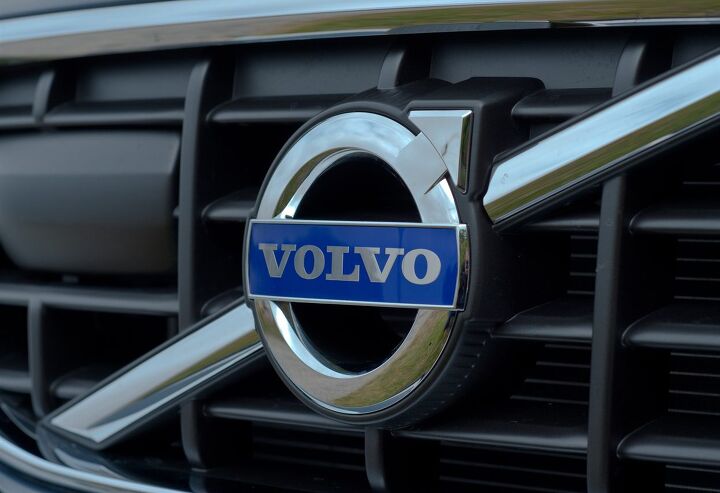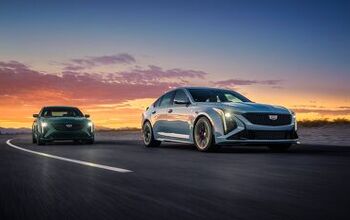Geely Nixes Volvo Merger, Volvo CEO Explains

Despite having already having Volvo Cars as one of its many subsidiaries, China’s Geely signaled roughly a year ago that it wanted to merge with the brand as part of its strategy to expand globally. Plans changed on this week when the company announced that the duo will be retaining their independent corporate structures, though they will continue working on a joint development program for electric vehicles.
This means more backing for the Lynk & Co. brand, a technology-focused joint venture Geely launched with Volvo in 2016. Lynk is hoping to bridge the gap between traditional vehicle sales and subscription-based models, while also pioneering telematics and other connected services that look like an invasion of privacy to some and a technological breakthrough to others. Regardless, the industry as a whole seems convinced this represents the evolution of the automobile and a stable source of revenue for companies capable of monetizing large amounts of data — often with the help of the world’s largest technology firms.
In a recent interview with Automotive News, Volvo CEO Håkan Samuelsson indicated that it wasn’t Volvo’s decision to dissolve the merger. But he did suggest that it was likely for the best, hinting that investors weren’t as keen on the idea as Geely was. At over $8.6 billion (USD), the Swedish brand is valued exceptionally high for its size. Reports from a Citi analysis claimed that important shareholders of the Chinese company expressed concerns that Volvo might be overvalued and could dilute their take. There were also claims that the pair had conflicting corporate cultures. Samuelsson did little to downplay either scenario.
“The valuation only matters on the day that someone is ready to pay,” he explained. “That being said, if you are bringing something in, then you have to determine the valuation and that could lead to endless discussions. But if you keep the companies separate, they can be evaluated separately. I think the capital markets see that as an advantage.”
Ultimately, he believes both companies would be better served by continuing to collaborate on EVs and software development. When asked about the cost benefits of combining efforts on those programs, instead of a going through with a traditional merger, he made it clear the tech stuff mattered most to Volvo — even if it wasn’t obvious to outsider eyes.
“They are so important but they are difficult to measure,” Samuelsson said. “If you are focused on hardware, then you could say, ‘OK, now I buy twice the volume of this shock absorber and I get 8 percent cost saving.’ It is very easy to measure. But if the synergies mean you will get something such as the Auto Pilot to market six months faster than expected and it’s better than if you did it alone, how do you value that? Unfortunately, I cannot quantify that as easily as with something more traditional.”
[Image: Volvo Cars]

A staunch consumer advocate tracking industry trends and regulation. Before joining TTAC, Matt spent a decade working for marketing and research firms based in NYC. Clients included several of the world’s largest automakers, global tire brands, and aftermarket part suppliers. Dissatisfied with the corporate world and resentful of having to wear suits everyday, he pivoted to writing about cars. Since then, that man has become an ardent supporter of the right-to-repair movement, been interviewed on the auto industry by national radio broadcasts, driven more rental cars than anyone ever should, participated in amateur rallying events, and received the requisite minimum training as sanctioned by the SCCA. Handy with a wrench, Matt grew up surrounded by Detroit auto workers and managed to get a pizza delivery job before he was legally eligible. He later found himself driving box trucks through Manhattan, guaranteeing future sympathy for actual truckers. He continues to conduct research pertaining to the automotive sector as an independent contractor and has since moved back to his native Michigan, closer to where the cars are born. A contrarian, Matt claims to prefer understeer — stating that front and all-wheel drive vehicles cater best to his driving style.
More by Matt Posky
Latest Car Reviews
Read moreLatest Product Reviews
Read moreRecent Comments
- Arthur Dailey 'Ere it's a nice little runner.Actually anyone with my log-in/sign-in name and picture absolutely should not be commenting on this article.
- Arthur Dailey Is the original Legend absolute peak Honda?
- MaintenanceCosts Curb weight of this version is likely north of 4500 pounds. Expect it to feel like a W221 S-Class, not a sporty coupe.
- Parkave231 New Oldsmobiles are in early this year.
- MaintenanceCosts "While there are absolutely exceptions, the days of the super-sleazy used car dealer seem to be behind us here in the States."Citation needed.


































Comments
Join the conversation
What a pile.
A true pile of sheite